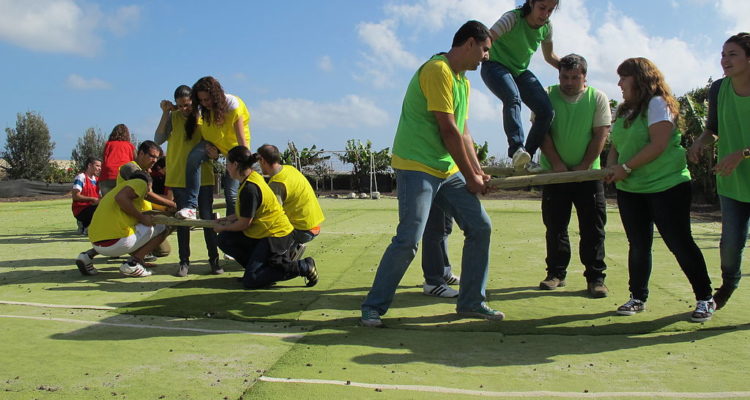Successful mission trips require preparation. Proper preparation builds and unifies teams, roots them in Scripture, equips them for cross-cultural ministry, and focuses them on Christ. Regardless of what type or duration of mission trip your team will be taking, effective mission trip preparation includes team building, Bible study, cross-cultural training, and the creation of a team covenant.
Team building may seem unnecessary for ministries that meet regularly. Yet, the reality is such teams also include more marginal students, as well as adult leaders who may not know team members well. Moreover, because mission trips require teams to work together in new ways, often in difficult or stressful circumstances, the more you do to build and unite your team prior to your trip, the easier it will be for you to function as a unified team during your trip.
To help build and unify your team prior to your trip, use a portion of each of your preparation meetings to do team-building activities. Use team-building activities to simulate unusual circumstances, force students to work together and overcome obstacles, and discover the strengths and weaknesses of your team as various personalities emerge.
A few simple team-building activities you can use for any size group or space include:
Blind Number Count: Separate students throughout a large space so no one can see each other. Instruct students to count from one through however many students you have. Students may each say only one number. If multiple students speak at the same time, if there’s too long of a pause between numbers, or if a number is skipped, they must start over. At no point can people say anything other than numbers.
Blindfolded Shape: Make a circle out of a rope. Then blindfold students and place the rope in their hands. (Rearrange students so they no longer know where they are standing.) Once students are blindfolded and holding the rope, instruct them to work together to make a designated shape (square, rectangle, diamond, 5-point star, heart, etc.) without letting go of the rope. Once you’re satisfied with the created shape, have students remove their blindfolds and look at their finished product.
Jump Rope: Tell your team you’re going to play a game of jump rope during which two people will twirl the jump rope while everyone else will (one at a time) run into the center and jump rope once before passing through to the other side. To successfully complete this challenge, your entire team (including the two original twirlers) must jump rope successfully. If the rope hits a person, a person steps on the rope, or the rope stops twirling for any reason, your team must start again.
For each team builder, play either can stop once your team has reached its goal or when your allotted time has ended. For the Blindfolded Shape and Jump Rope team builders, consider playing with the natural order and dynamics of your group in order to allow unexpected leaders to emerge. For example, inflict someone who tends to dominate the conversation with laryngitis in order to allow other, more quiet leaders to express their ideas.
Once you’ve finished your team builder, process it using the following questions:
1. What did our team do well?
2. What was particularly frustrating? Why?
3. How well did you handle frustrations during this activity?
4. During our mission trip, what might make our team frustrated? What are some healthy ways our team can manage its frustrations?
5. How well did you listen to one another during this activity?
6. During our mission trip, why is it important to listen to one another? How can we ensure that we listen to each other well?
7. Who emerged as a leader in this activity? Why do you think this was?
8. During this activity, were you more of a leader or a follower? Is this the role you tend to play in a group setting? Why do you think this is?
9. During our mission trip, when might you need to lead? Follow?
10. Overall, what did you learn about our team from this activity?
11. How can we apply what we just learned to our mission trip?
By taking the time to process team-building activities, you’ll help your team learn and grow from them, a feat which in turn will prepare your team to work together effectively during your mission trip.
Stay tuned for the remaining articles in this series in which we’ll be discussing how to prepare your mission team through Bible study, cross-cultural training and the creation of a team covenant.




